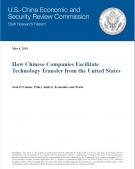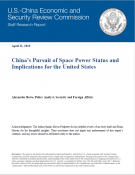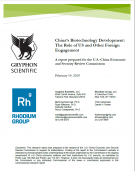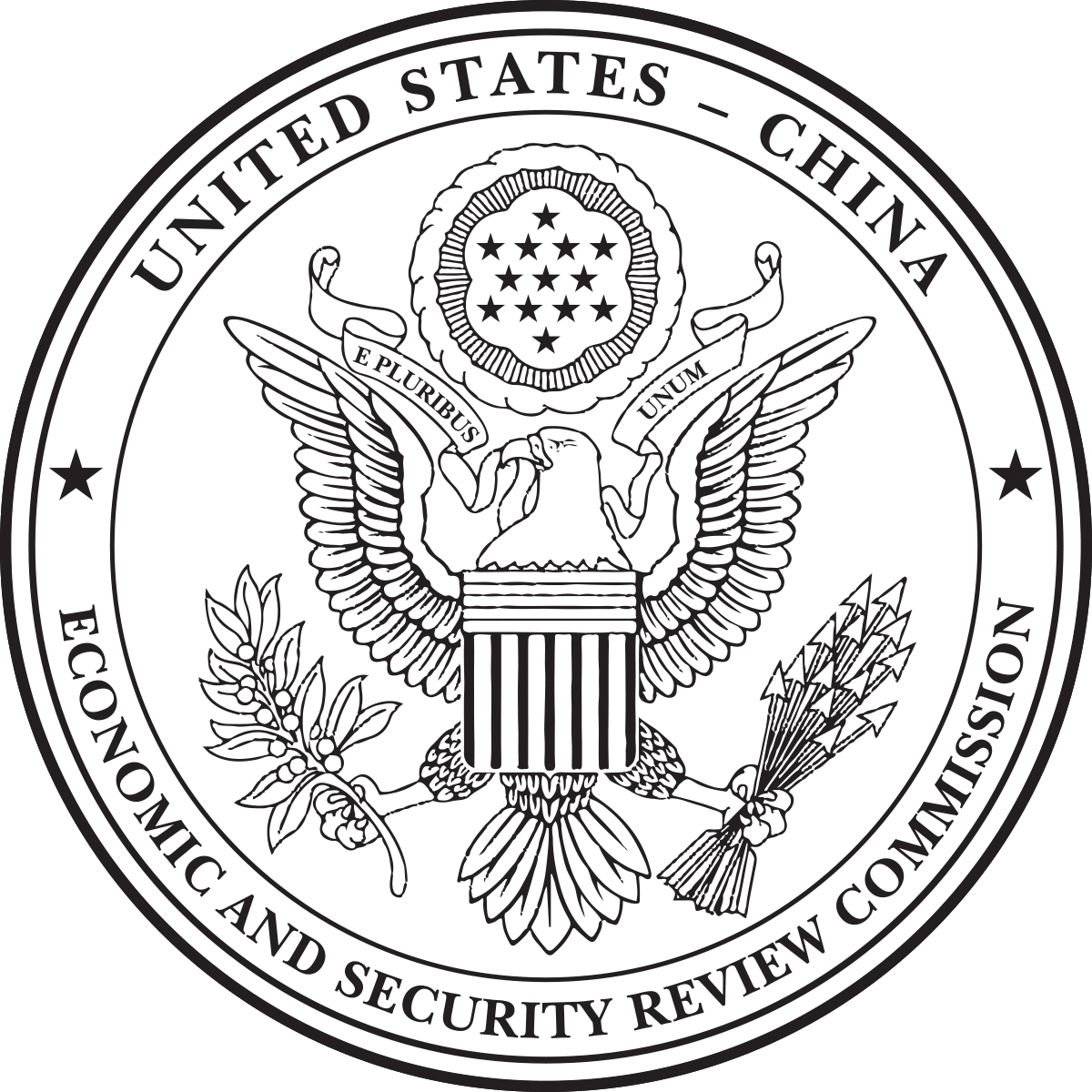Filter Results
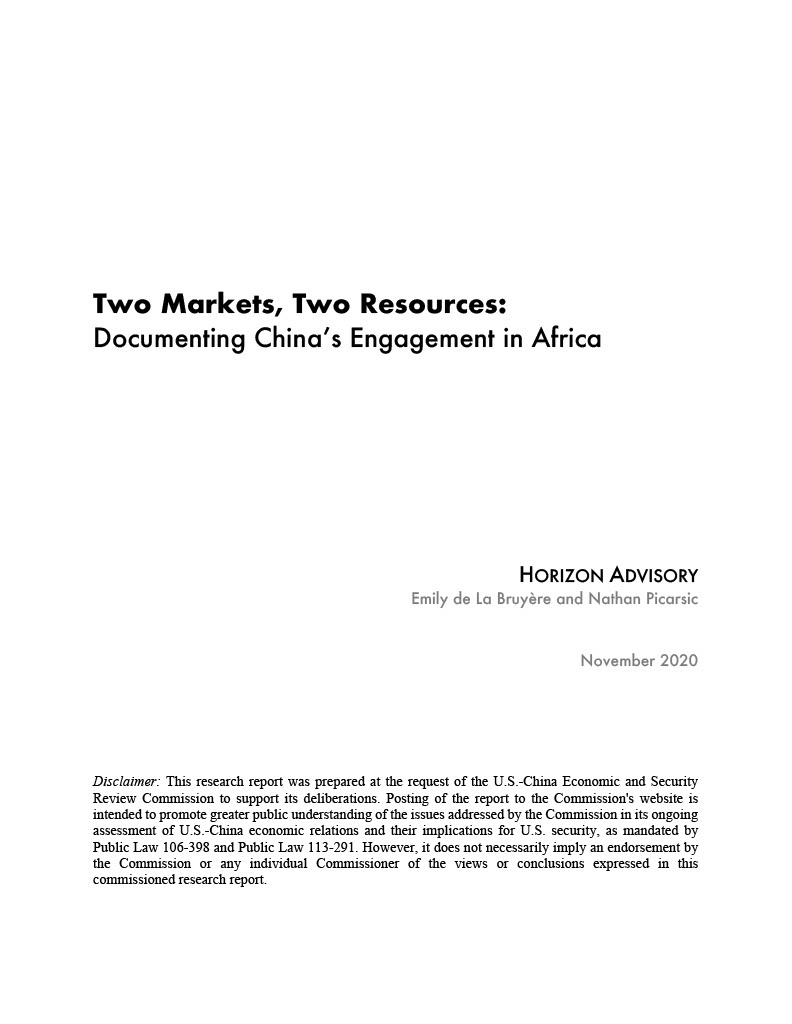
Under a “state-led, enterprise-driven” approach, Chinese firms have significantly expanded their presence in extractive industries in African countries over the past three decades.
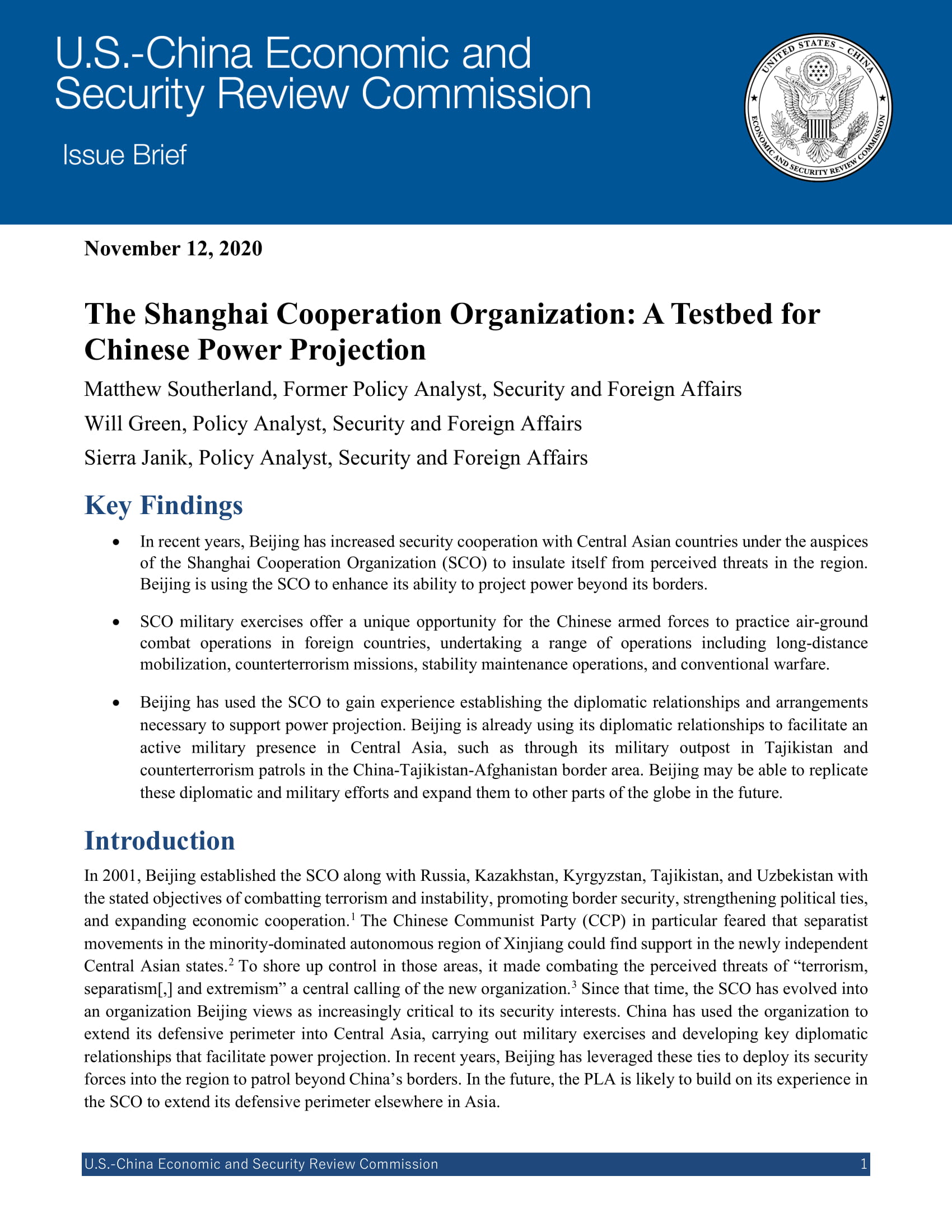
This issue brief examines China’s efforts to use the Shanghai Cooperation Organization (SCO), an organization originally founded by China, Russia, and Central Asian countries, as a platform to project power and influence beyond China’s borders.
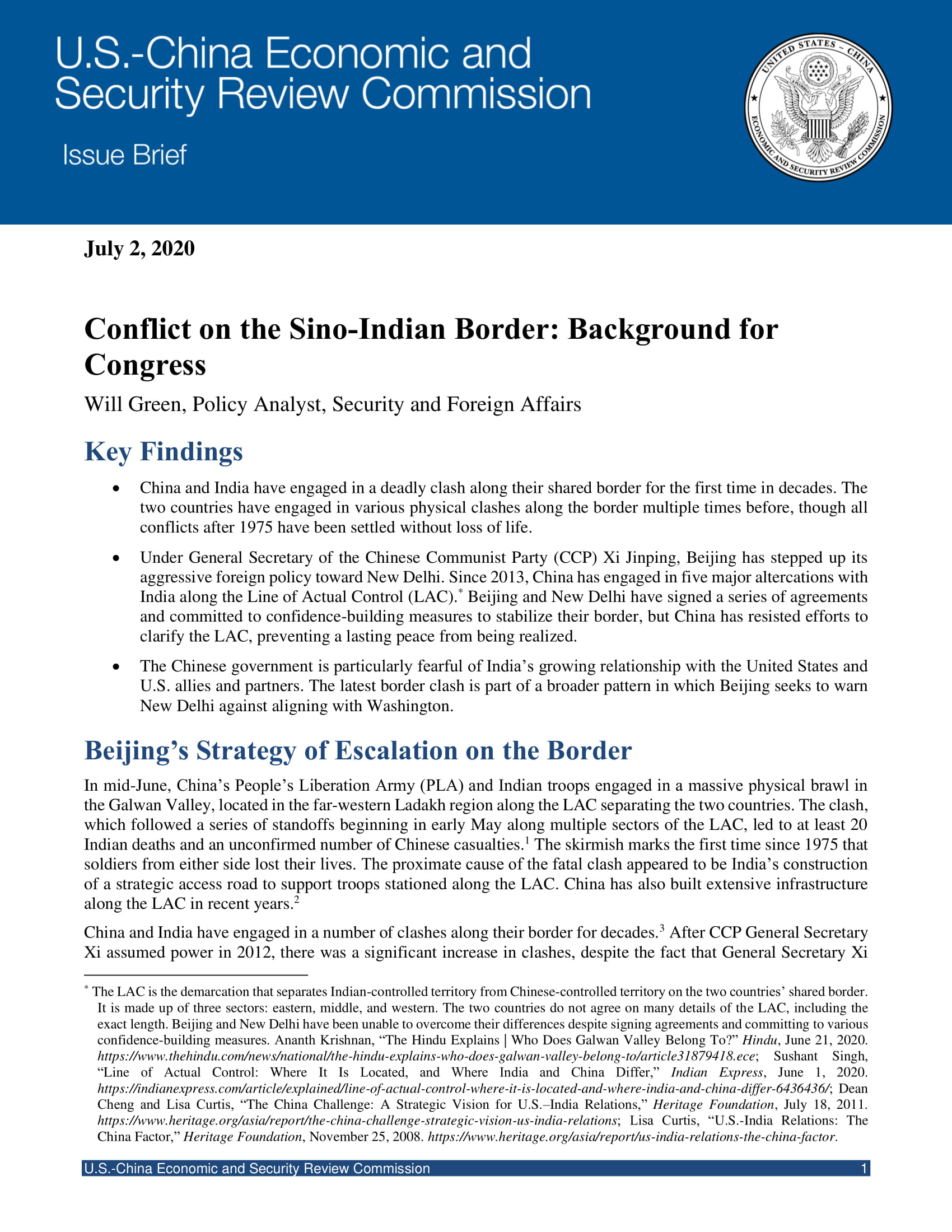
In mid-June 2020, China’s People’s Liberation Army and Indian troops engaged in a massive physical brawl in the Galwan Valley, located in the far-western Ladakh region along the China-India border.
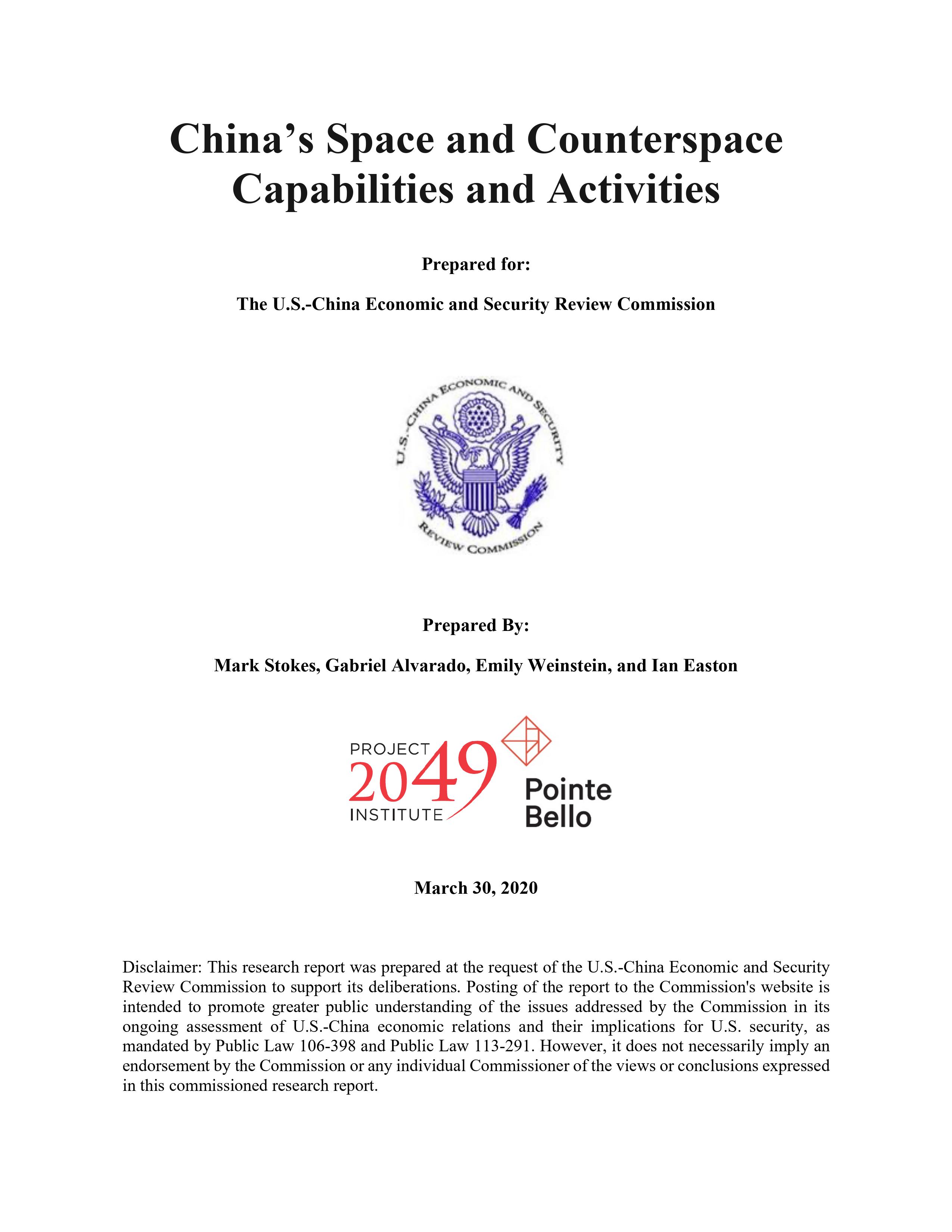
The following report, "China’s Space and Counterspace Capabilities and Activities," examines China’s military and civil space programs, including the role of military-civil fusion (MCF) and international cooperation in the development of its space program.
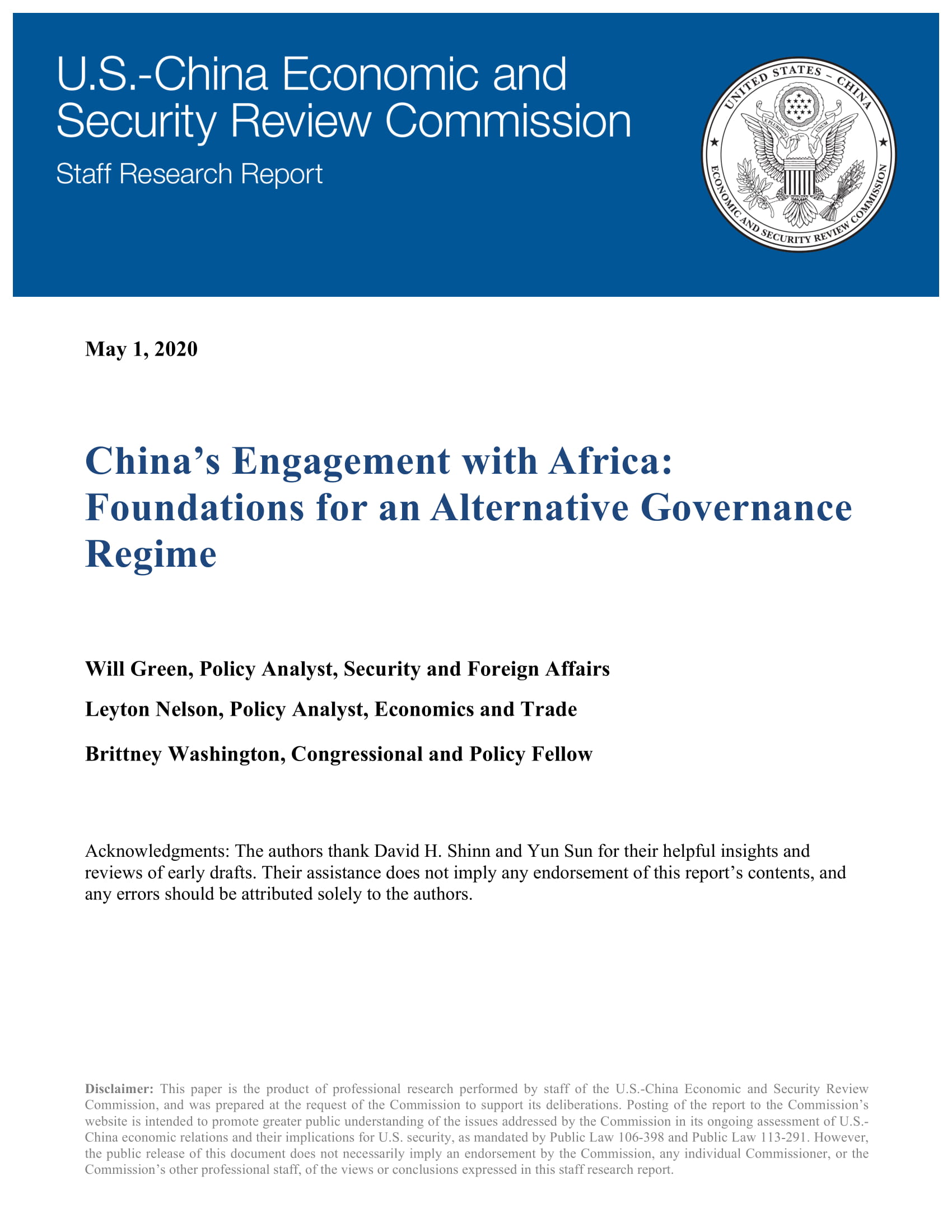
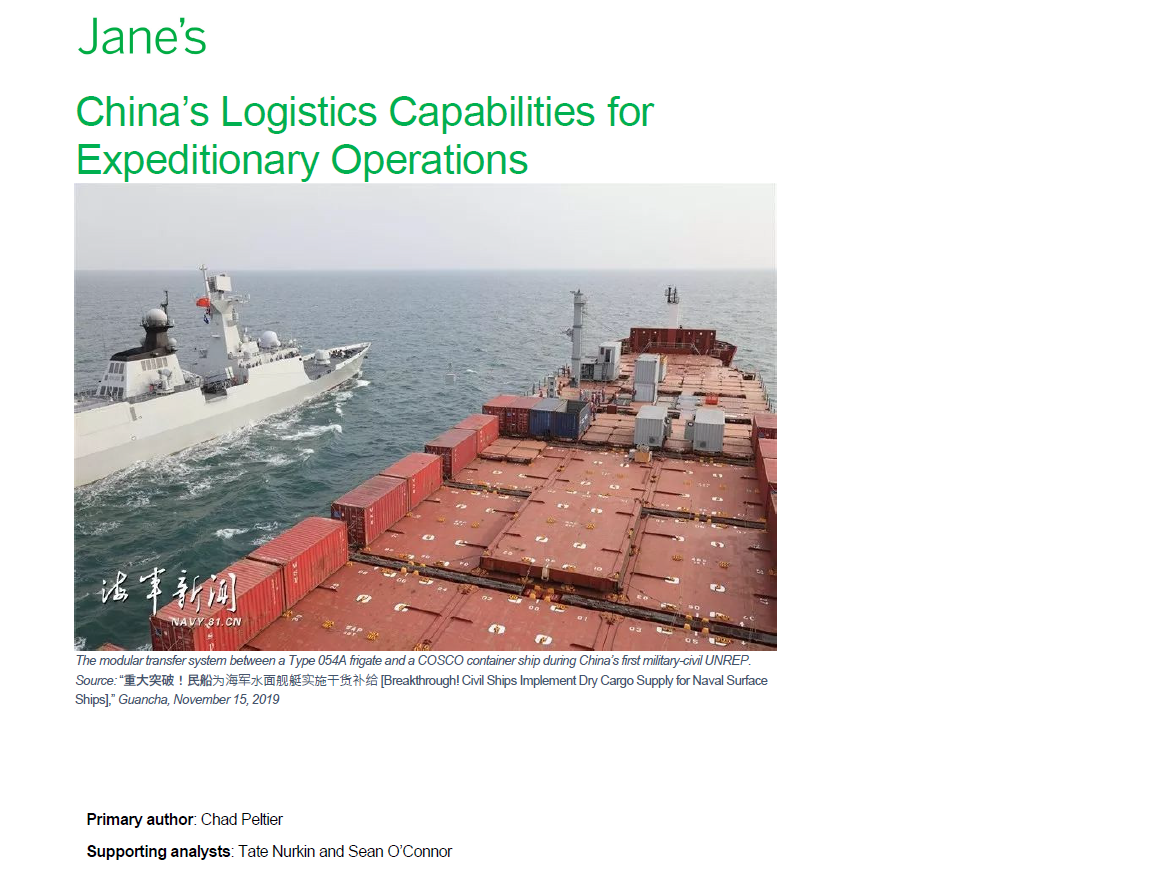
The U.S.-China Economic and Security Review Commission released a report entitled China's Logistics Capabilities for Expeditionary Operations, prepared for the Commission by Jane's.
